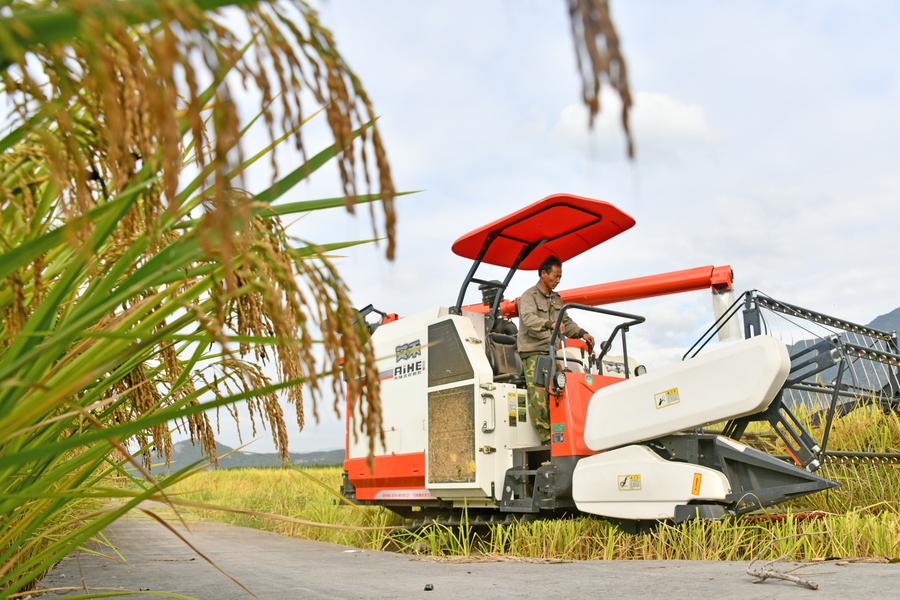A farmer operates an agricultural machinery to harvest rice at Baita Town of Xianju County in Taizhou, east China’s Zhejiang Province, Oct. 5, 2023. (Photo by Wang Huabin/Xinhua) BEIJING, May 24 (Xinhua) — A team of Chinese scientists has unveiled the continuous evolutionary history of rice, tracing its journey from wild to domesticated over an astounding period of 100,000 years.
The findings published on Friday in the journal Science not only shed new light on the progression of human society and the origins of agricultural civilization, but also present compelling evidence that China is the birthplace of rice. The cultivation and domestication of rice, a dietary staple for billions worldwide, have exerted a significant influence on the evolution of Chinese civilization. Scholars from various academic fields have long been captivated by the study of how humans first began cultivating wild rice and the evolutionary journey from wild to cultivated strains.

Archaeological findings of rice at sites like Hemudu and Shangshan in the Yangtze River’s middle and lower valleys since the 1970s have shed light on the region’s pivotal role as a cradle for rice cultivation. However, identifying well-preserved markers that differentiate wild from cultivated rice in the region, dating back to the last glacial maximum, and elucidating the mechanisms and processes behind early human exploitation, cultivation and domestication of wild rice, continued to be central challenges in archaeo.























